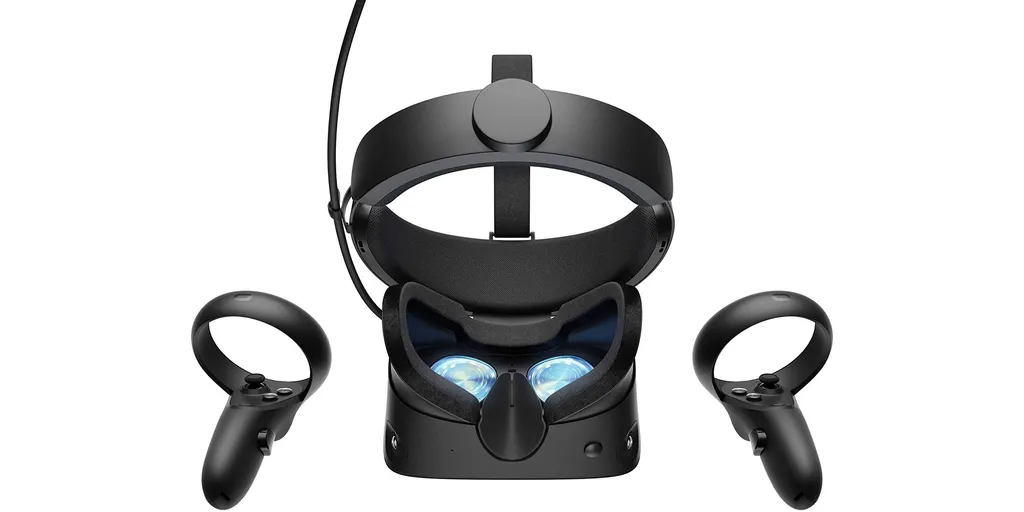The reveal of the Oculus Rift S at GDC this week was one of the industry’s worst kept secrets. What was better hidden, though, was the fact that Rift S is built in partnership with Lenovo. It’s even got a Lenovo logo on the side.
Oculus is no stranger to partnering up with manufacturers, at least on mobile VR hardware. Its first-ever headset, Gear VR, was made with Samsung and it collaborated with Xiaomi on the Oculus Go. Still, building a successor to the Rift with another partner seems strange. VP of Product Nate Mitchell says the decision was fairly straightforward, though.
“In the case of Rift S, we saw the opportunity to build through this evolutionary version of Rift,” Mitchell told us. “And we decided to ourselves, ‘Hey it would be great if we could partner [with someone] who can speed to market, who can help us take off some of the heavy lifting from our team and ideally bring some of their own expertise.'”
Lenovo was apparently quick to emerge as an ideal partner. “They’ve just done a lot of products in AR and VR so they’re very knowledgeable, actually, about what works and what doesn’t,” Mitchell added.
Indeed, Lenovo has both VR and AR headsets. For the former, it was a part of Microsoft’s line of Windows VR headsets that released in 2017. It also partnered with Google to release the Mirage Solo standalone headset for Daydream in 2018.
“So sitting down with them to design Rift S was actually a lot of fun,” Mitchell concluded. “And, ultimately, they did help in a really big way, bringing this product to market faster and [making it] more affordable.”
Even with Mitchell’s explanation, we can’t help but wonder if the real reason is a little different. Last year Lenovo revealed it had come to an agreement with Sony Interactive Entertainment. The deal allowed Lenovo to keep using the halo-ring design for the Mirage Solo. Fast forward to today and Rift S is using the same halo ring. We don’t know the true specifics behind that deal, but it may be why Oculus sought out Lenovo in the first place.
Rift S is due to launch this spring for $399.




























